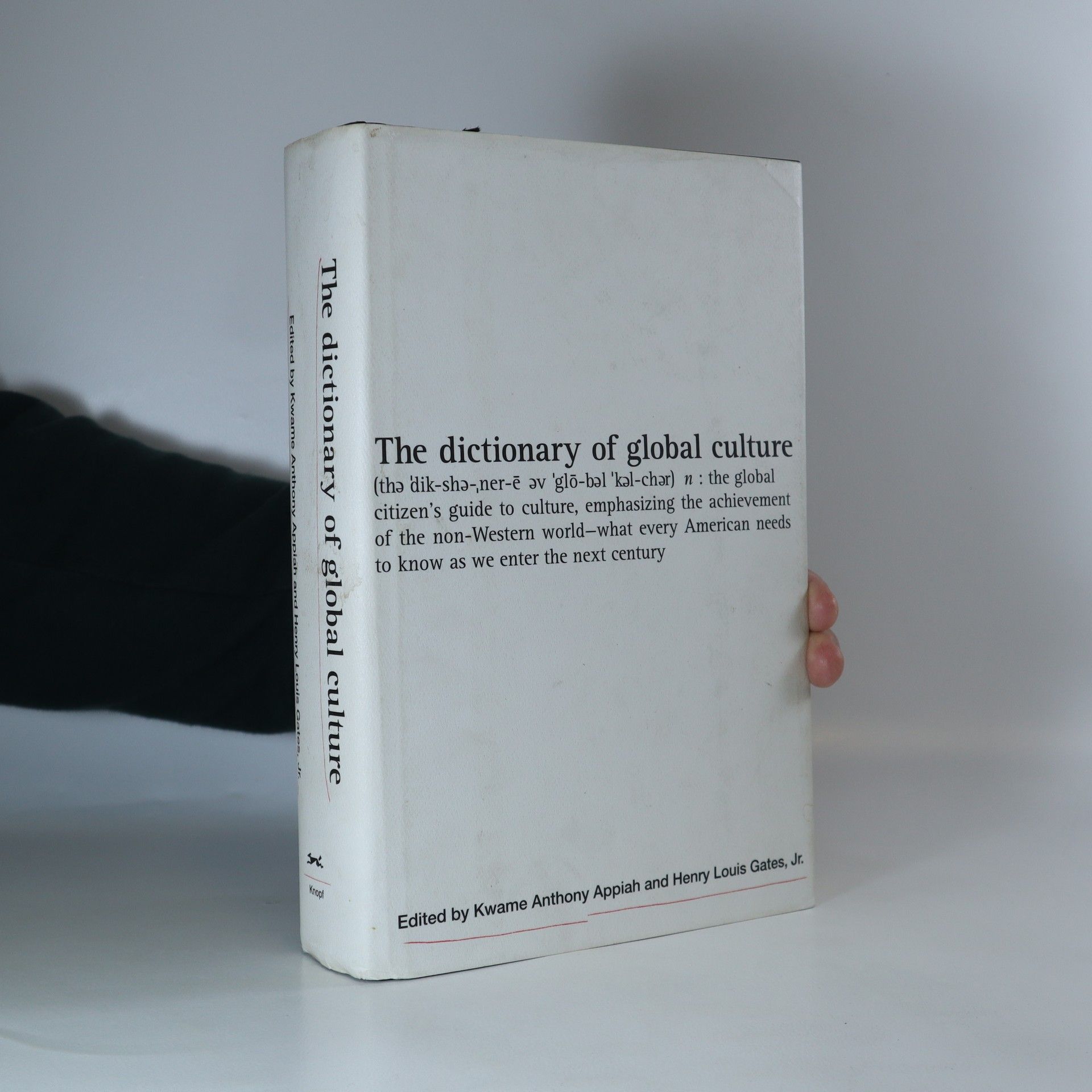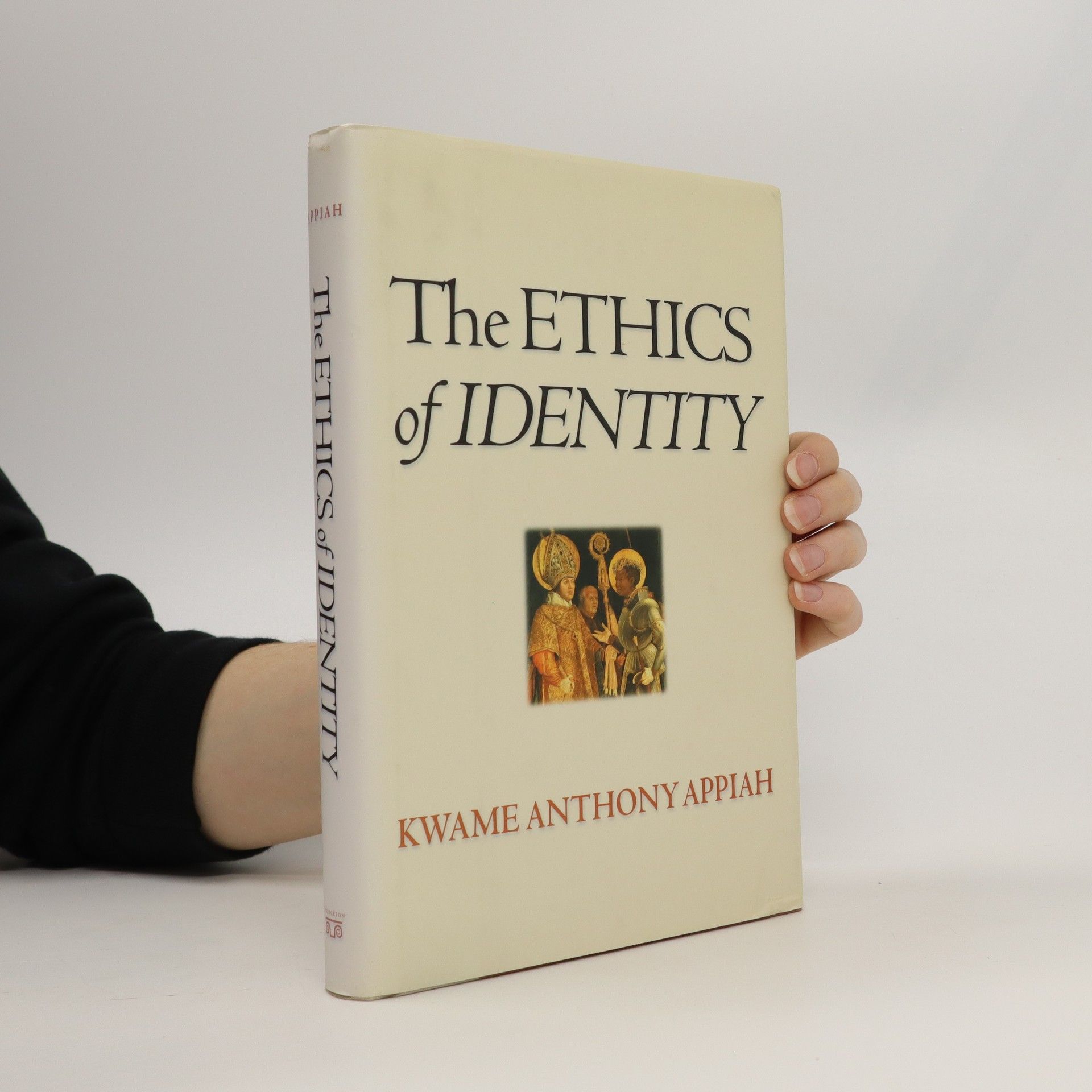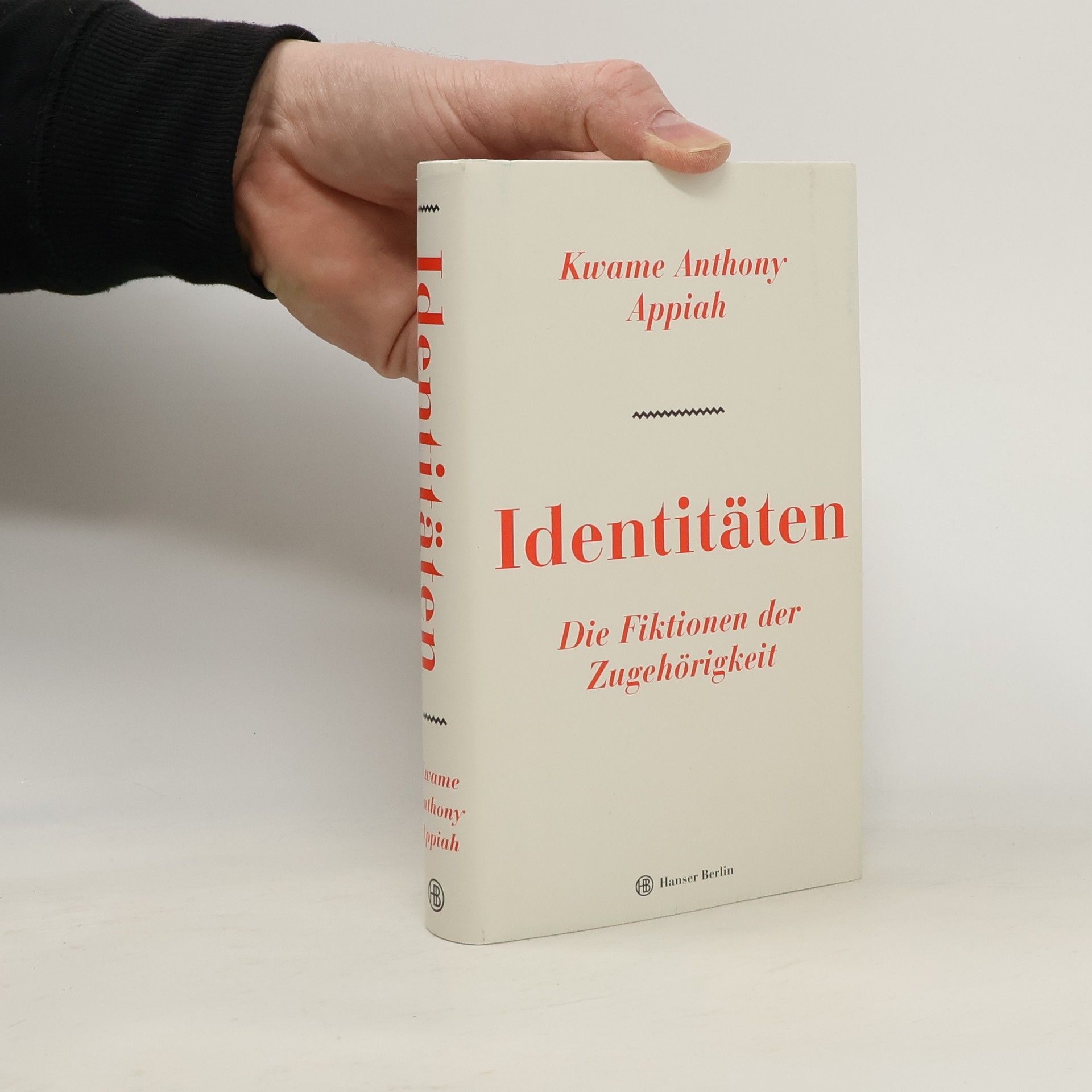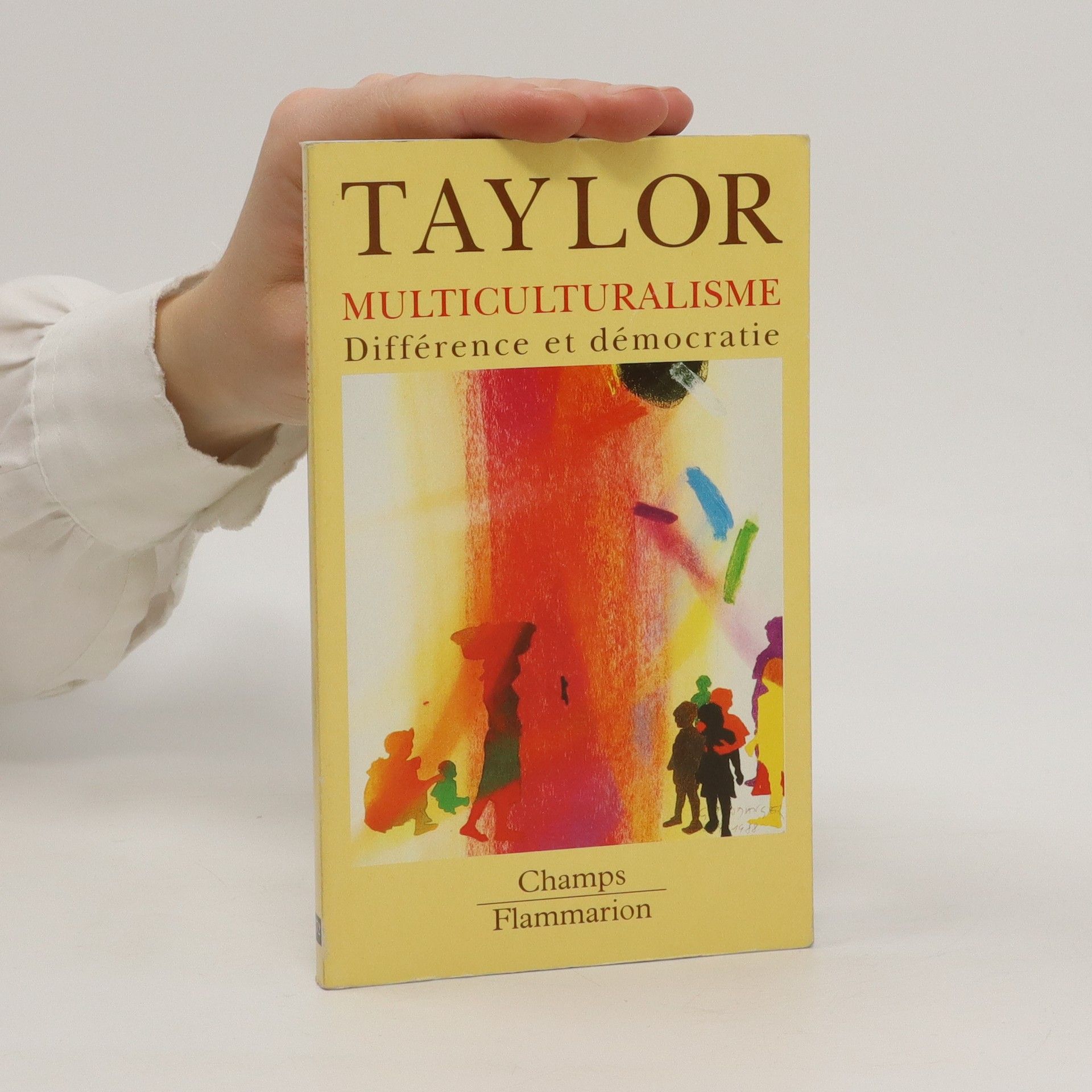This text explores the ethical significance of identity, including our gender, race, ethnicity, nationality, religion and sexuality, for our obligations to others and to ourselves.
Kwame Anthony Appiah Livres
Kwame Anthony Appiah explore les concepts complexes d'identité et d'éthique dans ses écrits. Son travail fait souvent le lien entre la philosophie et notre vie quotidienne, offrant des aperçus pénétrants sur les dilemmes moraux auxquels nous sommes confrontés. La prose d'Appiah est réputée pour sa clarté et son accessibilité, rendant les idées complexes compréhensibles à un large public de lecteurs. Il incite les lecteurs à réfléchir à la manière dont nous construisons nos identités et à nos responsabilités dans un contexte mondial.






The dictionary of global culture
- 717pages
- 26 heures de lecture
"The global citizen's guide to culture, emphasizing the achievement of the non-Western world -- what every American needs to know as we enter the next century."--Cover
The Lies That Bind
- 272pages
- 10 heures de lecture
We often think identity is personal. But the identities that shape the world, our struggles, and our hopes, are social ones, shared with countless others. Our sense of self is shaped by our family, but also by affiliations that spread out from there, like our nationality, culture, class, race and religion.Taking these broad categories as a starting point, Professor Appiah challenges our assumptions about how identity works. In eloquent and lively chapters, he weaves personal anecdote with historical, cultural and literary example to explore the entanglements within the stories we tell ourselves. We all know there are conflicts among identities; but Professor Appiah explores how identities are created by conflict. Identities are then crafted from confusions - confusions this book aims to help us sort through. Religion, Appiah shows us, isn't primarily about beliefs. The idea of national self-determination is incoherent. Our everyday racial thinking is an artefact of discarded science. Class is not a matter of upper and lower. And the very idea of Western culture is a misleading myth. We will see our situation more clearly if we start to question these mistaken identities. This is radical new thinking from a master in the subject and will change forever the way we think about ourselves and our communities.
Cosmopolitanism : ethics in a world of strangers
- 224pages
- 8 heures de lecture
“A brilliant and humane philosophy for our confused age.”―Samantha Power, author of A Problem from Hell Drawing on a broad range of disciplines, including history, literature, and philosophy―as well as the author's own experience of life on three continents― Cosmopolitanism is a moral manifesto for a planet we share with more than six billion strangers.
A guide to the history and current state of Africa and African American heritage includes entries on topics ranging from affirmative action to zydeco.
Der Kosmopolit
Philosophie des Weltbürgertums
Kwame Anthony Appiahs Philosophie des Kosmopoliten verkörpert die Idee, die Vielfalt der Kulturen als gemeinsamen Gewinn zu betrachten, selbst wenn wir unterschiedliche Werte und Wahrheiten leben. In einer zunehmend vernetzten Welt kritisiert Appiah sowohl das Konzept des „Kriegs der Kulturen“ als auch einen naiven Multikultirelativismus. Sein elegant geschriebenes Werk bringt das klassische Ideal des „Weltbürgers“ in die Gegenwart zurück – ein Ideal, das den kreativen Austausch über Grenzen hinweg betont. Appiahs kosmopolitische Ethik strebt eine Balance zwischen dem Glauben an universale Werte und dem Respekt vor der Andersartigkeit nichtwestlicher Erfahrungen an. Diese Balance wird durch „Konversation“ erreicht, ein Begriff, dem Appiah neue philosophische Bedeutung verleiht. Er beschreibt dies als das einzige Mittel, um nationale, religiöse oder kulturelle Differenzen zu erkunden und sich an sie zu gewöhnen. Für den Weltbürger ist nicht Konsens entscheidend, sondern der Glaube an die Gemeinsamkeit des Menschseins in einer Welt voller Fremder. In einer brillanten Kritik an der Überbetonung der Differenz in der abendländischen Philosophie zeigt Appiah anhand zahlreicher Beispiele, auch aus seiner afrikanischen Heimat, wie modernes Weltbürgertum gelebt werden kann.
Identitäten
- 336pages
- 12 heures de lecture
„Appiah zerlegt die Dogmen und die Propaganda, die harnäckig bestimmen, wie wir über Identität sprechen.“ Zadie Smith In den politischen Auseinandersetzungen der Gegenwart wird immer wieder eine Kategorie aufgerufen: Identität. Wer sind wir? Oder besser: Was sind wir? Diese Fragen beantworten wir gewohnheitsmäßig mit kollektiven Kategorien wie Religion, Nationalität, Hautfarbe, Klasse oder Kultur. Kwame Anthony Appiah zeigt, dass hinter den politischen Kategorien von Zugehörigkeit und Abgrenzung häufig paradoxe Zuschreibungen stehen, und schöpft dabei aus einem schier unendlichen Reservoir historischen Wissens sowie persönlicher Erfahrungen – und schafft mit dem Handwerkszeug des Philosophen Ordnung und Orientierung in einer häufig unübersichtlichen und politisch brisanten Diskussion. Sein Buch ist grundlegende Lektüre für eine komplexe Welt.
Multiculturalisme. Différence et démocratie
- 144pages
- 6 heures de lecture
Zákon cti
Jak dochází k morálním revolucím


